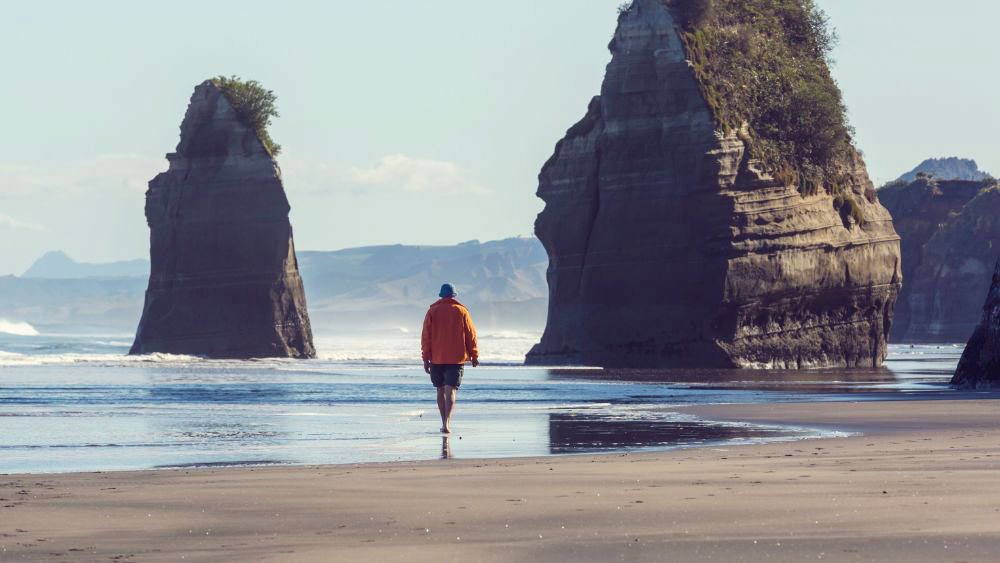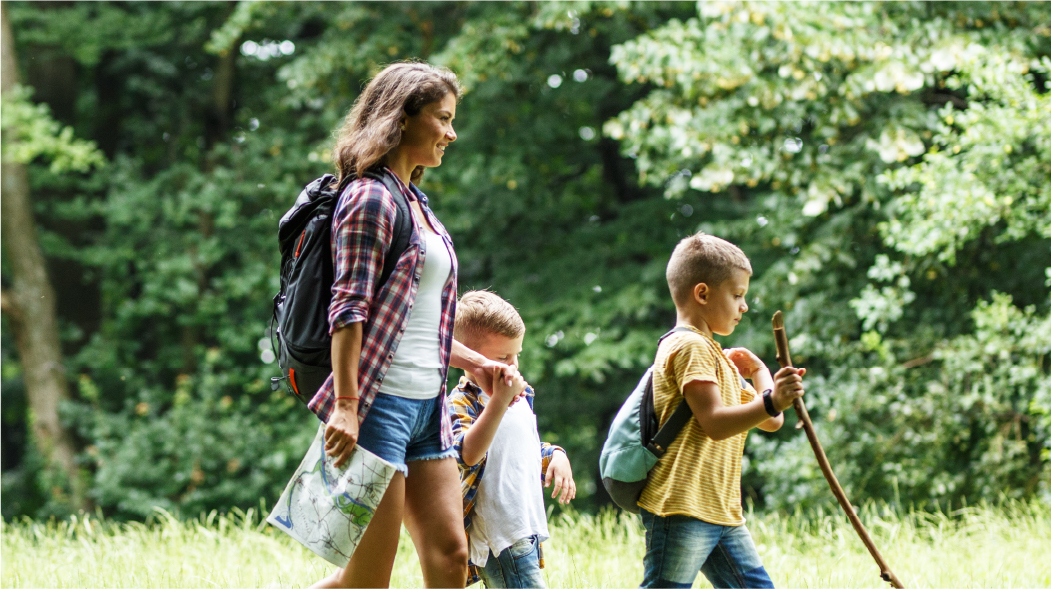As we acknowledge World Environment Day, clinical psychologist Dr Jackie Feather shares her tips for dealing with eco anxiety to protect both your mental health and the environment around us.
What is eco anxiety?
Eco anxiety, eco grief, or eco trauma describe the feelings we experience when we’re faced with the effects of environmental devastation. This could be plastic in the ocean, deforestation, climate change or the recent flooding we’ve directly experienced in Aotearoa New Zealand.
As we become more aware of the devastating effects of environmental degradation, it's not uncommon to experience eco anxiety. This strong emotional response can make us feel overwhelmed, helpless, and even hopeless. It's important to remember that feeling distressed or overwhelmed is a normal responses to a real threat.
What are the effects on our mental state following distressing climate-related events?
There is a difference between direct and indirect effects; recent global research about extreme weather events showed 90 per cent of people experience some kind of psychological response to the impacts of climate change. However, this is more so for people who have been directly impacted.
For these people, like New Zealanders who have been severely impacted, livelihoods or experienced damage to their property by the recent floods, acute stress and grief are to be expected. Longer term effects can include anxiety, depression or Post Traumatic Stress Disorder (PTSD) symptoms, such as nightmares and avoiding places or people associated with the traumatic event. It is important to seek professional support to resolve any ongoing mental health problems.
On a positive note, some people experience Post Traumatic Growth - positive psychological change in response to a traumatic event. While it’s important to recognise feelings of distress, it’s equally important to acknowledge newfound strength and resilience.
For those who watched the effects of the floods unfold on the news or in our communities, but were not directly affected, the sense of threat might not go away once the crisis is over. Eco anxiety can persist and we need strategies to manage it.
Three steps to manage feelings of eco anxiety
Anxiety - like any emotion - is a message that you need to keep safe. You might be familiar with the fight-flight-freeze response anxiety often triggers. It’s important to acknowledge your feelings, recognise that you’re not under immediate threat, and to step back and adopt the three steps of acceptance and commitment therapy as a guide to work through your emotions:
- Open up: Allow yourself to feel these feelings, but take care not to overwhelm yourself and push them away
- Bring yourself back to the present moment: Tune into your five senses to ground yourself and find calm in your immediate surroundings
- Do what matters: This is where hope comes in, and it starts with our values. Take action in meaningful ways, starting with small steps to change how we live and help others. If you value contribution you may want to provide physical or financial help to your community. If you value the environment, you may find meaning in joining a local planting group. If you value justice, you may write a submission, or join a protest
The key to managing eco anxiety is to take action in meaningful ways. By taking action, we can alleviate some of the anxiety we feel and make a positive impact on the world around us.
Tips for mental preparation and resilience in the face of more severe weather events
With increasingly unpredictable weather patterns, it is essential to be prepared for potential severe weather events. Mental preparation is just as crucial as physical preparation when it comes to resilience.
- Have an emergency plan with your friends and family. This can reduce the anxiety and stress that come with unexpected events.
- Get outdoors and exercise regularly to help relieve stress and anxiety. Simply being in nature can also be a helpful way to connect with the natural world and reduce anxiety levels. A lack of sun and serotonin can affect our moods and natural light can help.
- Engage in activities that promote mindfulness. Meditation or journaling can build inner strength and resilience. Everyday mindfulness can be simply listening to music, or savouring the smell and taste of your food.
- Don't be afraid to seek professional help. Therapy or counselling can help navigate the difficult emotions that may arise. By taking care of ourselves mentally and physically, we can be better equipped to handle whatever the weather brings
Talking to children about climate change
Talking to our children about climate change can be a delicate task. We want to educate them truthfully without inducing unnecessary fear and anxiety. One way to start the conversation is by asking them what they know already. This will give you some insights into their current views and understanding about climate change. Acknowledge their feelings and concerns and that it's normal to feel scared or overwhelmed. Reassure them that there are millions of people working to create change.
It's also important to monitor their media exposure and sources, as they may be misinformed by misleading or false information. Taking a break from the media is important to manage feelings of eco anxiety. Encourage them to get outside and kick a ball around.
Finally, inspire them to take action and make positive changes by talking together about ways your family can contribute to creating a better future. By taking a thoughtful approach, we can educate our children about the realities of climate change while empowering them to make a difference.
Some sources I’ve found helpful to manage feelings of eco anxiety and mental health distress include:
- For adults: https://www.depression.org.nz/ - this site has depression and anxiety self-tests, pathways to getting support, self-help, free 24 hour helpline
- For young people/rangitahi: https://www.thelowdown.co.nz/
- For kids: https://whatsup.co.nz/
- In crisis? https://mentalhealth.org.nz/help - resources for immediate support
Dr Jackie Feather is a clinical psychologist and co-convenor of the New Zealand Psychological Society's Climate Psychology Taskforce. She helps people experiencing everyday problems, life transitions and serious mental health concerns, as well as eco-anxiety and climate grief. Jackie takes a holistic approach, considering issues in the context of the complex world we live in. Jackie is trained in cognitive behavioural therapy (CBT), trauma-focused therapy, acceptance and commitment therapy (ACT), mindfulness and compassion focused therapy. She is particularly interested in helping people find a sense of wellbeing and a life that is more fulfilling and aligned with their values.






